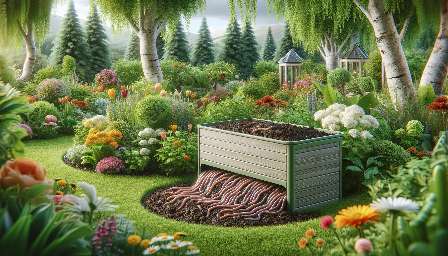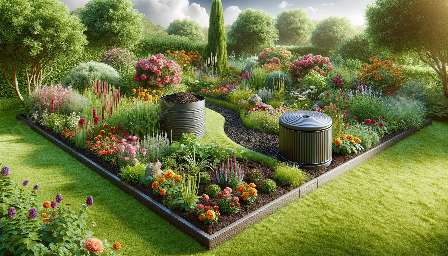Composting in hot climates presents unique challenges and opportunities for gardeners and landscapers. While the high temperatures can accelerate the decomposition process, they also bring potential issues such as excessive moisture loss and the risk of overheating the compost pile. In this comprehensive guide, we'll delve into the world of composting in hot climates, providing valuable insights and practical tips to help you create a successful composting system for your garden in warm weather.
The Benefits of Composting in Hot Climates
Composting in hot climates offers several advantages for gardeners and landscapers. The elevated temperatures can speed up the decomposition of organic matter, resulting in faster production of nutrient-rich compost. Additionally, the warm conditions can help to kill off weed seeds and harmful pathogens, leading to a higher-quality end product.
Challenges of Composting in Hot Climates
Despite the potential benefits, composting in hot climates also poses specific challenges. High temperatures can cause excessive moisture loss from the compost pile, leading to dry and unproductive conditions. Moreover, overheating the compost pile can result in the loss of beneficial microorganisms and the production of foul odors.
Key Considerations for Composting in Hot Climates
When composting in hot climates, it's essential to consider the following key factors to ensure a successful and effective composting process:
- 1. Moisture Management: Maintaining adequate moisture levels is crucial in hot climates. Regularly monitor the moisture content of the compost pile and add water as needed to prevent excessive drying out.
- 2. Aeration: Proper aeration is essential to prevent overheating and maintain the health of the composting microorganisms. Turn the compost pile regularly to promote airflow and reduce the risk of anaerobic conditions.
- 3. Insulation: Consider using insulating materials such as straw or shredded paper to regulate the temperature of the compost pile and protect it from extreme heat.
Composting Techniques for Hot Climates
Several composting techniques are well-suited for hot climates, including:
- 1. Trench Composting: Digging trenches directly in the garden soil and filling them with organic waste can harness the earth's natural insulation and moisture, making it suitable for hot climates.
- 2. Vermicomposting: Using composting worms, such as red wigglers, to process organic matter can be particularly effective in hot climates, as the worms help regulate moisture and temperature levels within the compost pile.
- 3. Shade and Wind Protection: Providing shade and wind protection for the compost pile can help mitigate the effects of extreme heat and maintain optimal composting conditions.
Best Practices for Composting in Hot Climates
To achieve successful composting in hot climates, consider implementing the following best practices:
- 1. Selecting the Right Materials: Choose a balance of carbon-rich (browns) and nitrogen-rich (greens) materials to maintain an optimal carbon-to-nitrogen ratio and promote efficient decomposition.
- 2. Monitoring and Adjusting: Regularly monitor the temperature, moisture content, and overall condition of the compost pile, and make necessary adjustments to promote healthy decomposition.
- 3. Utilizing Compost Thermometers: Invest in a compost thermometer to accurately monitor the temperature of the compost pile and ensure it remains within the ideal range for decomposition.
Conclusion
Composting in hot climates can be a rewarding and beneficial practice, provided that the specific challenges and considerations are addressed effectively. By understanding the unique dynamics of composting in warm weather and implementing appropriate techniques and practices, gardeners and landscapers can harness the power of high temperatures to create nutrient-rich compost and enhance the health and vitality of their gardens and landscapes.















































